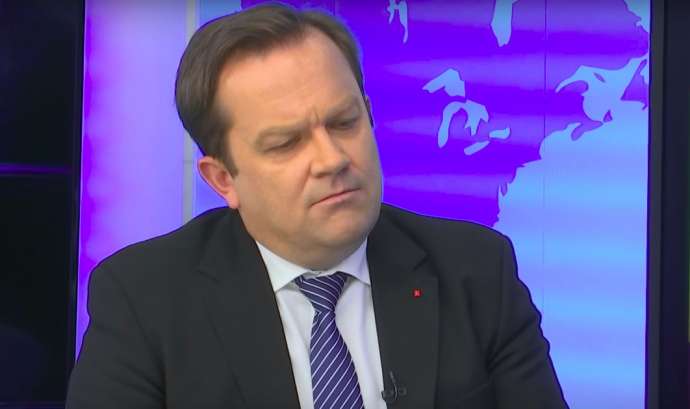STA, 28 January 2019 - Prime Minister Marjan Šarec's decision to accept the resignation by Culture Minister Dejan Prešiček triggered mixed responses on Monday. Welcoming the move, trade unions warn that the resignation alone will not be enough, while Prešiček's supporters regret his departure. Coalition parties respect Šarec's decision.
The Glosa trade union of culture and the Trade Union of State Bodies believe that Prešiček's resignation alone will not be enough for the situation to return to normal. More action is needed both at the ministry and wider in culture, they said.
Glosa head Mitja Šuštar said that Prešiček "is definitely not responsible for the old problems, but he is responsible for what was going on when he came and for maybe not tackling the situation as he should have, because we have something called subjective and objective responsibility."
It is essential that the situation at the ministry and wider improves and this will be the task for the new minister, according to Šuštar.
He also hopes that the new minister will tackle the issue of the status of the self-employed in culture and the drawing up of a new collective bargaining agreement.
According to Frančišek Verk of the Trade Union of State Bodies, Prešiček was "obviously just the tip of the iceberg." Some things had been heading in the wrong direction for a while, but now somebody took their own life, he said in a reference to the suicide of a ministry employee which triggered an avalanche of accusations against the minister.
Verk believes Prešiček handing in his resignation was the right thing to do. But he also pointed to "some employees at the ministry, who have been there for decades, enjoying certain privileges they would not have in the private sector."
The head of the Culture Ministry's in-house trade union, Gregor Lesjak told the STA he saw Šarec's decision as a sign that the government would help tackle the situation at the ministry.
"Employees are relieved. Indeed, we must make an effort to improve our relations ourselves, but the understanding and support of the leadership is important in this process. We wish that the new leadership would lend an ear and help tackle all the problems that have piled up in a dignified way," he wrote in a statement.
Several acclaimed figures from the world of arts and culture who had expressed support to Prešiček in the face of bullying and abuse of office accusations regretted his departure today.
The head of the Kapelica Galley, Jurij Krpan, told the STA that the relations at the Culture Ministry had been poor for a decade and that Prešiček had "started putting things right again."
"He created hope that these relations could start changing," he said.
A similar line of thought came from the coalition Alenka Bratušek Party (SAB), with MP Maša Kociper saying that it was not completely clear yet whether Prešiček was indeed a man with a quick temper or somebody who wanted to make changes at the ministry and faced resistance from interest groups.
Other coalition parties said they respected the prime minister's decision and would like the situation at the ministry to be thoroughly investigated.
Prešiček's Social Democratic Party too said it respected the prime minister's decision and was already looking for a new minister.
The opposition New Slovenia (NSi) and the Left, which see Šarec's move as sensible, were critical of the SD, suggesting it had not been not resolute enough when the scandal erupted.
The National Party (SNS) head, Zmago Jelinčič, said he would have kept Prešiček and tackled the situation at the ministry and public broadcaster instead. The Democrats (SDS) would not comment on the matter.
Two journalists' associations, the DNS and ZNP, commented on the resignation by expressing fear that the replacement at the helm of the Culture Ministry would delay the planned overhaul of the media legislation.
"Putting the factors and circumstances that led to Prešiček's resignation aside and looking at the culture sector as a whole, we can see that the minister's resignation and replacement suggests that the much needed changes to the media legislation cannot be expected any time soon," DNS head Petra Lesjak Tušek said.
Political analyst Andraž Zorko meanwhile said that the course of events leading up to today's announcement made the prime minister look like a "winner" because he made the seemingly hard final decision in accepting Prešiček's resignation.
While Šarec's refusal to comment on the affair while in Davos last week made it seem like he was indecisive, Zorko believes that he was trying to give time to Prešiček to hand in his resignation before being dismissed.
Zorko was however not surprised with the move, saying that the dismissal of former Cohesion Policy Minister Marko Bandelli set a high standard and that Šarec had no other option but to let Prešiček go.






